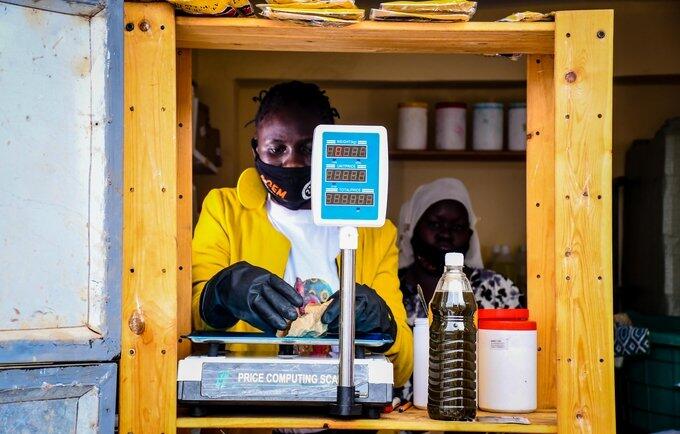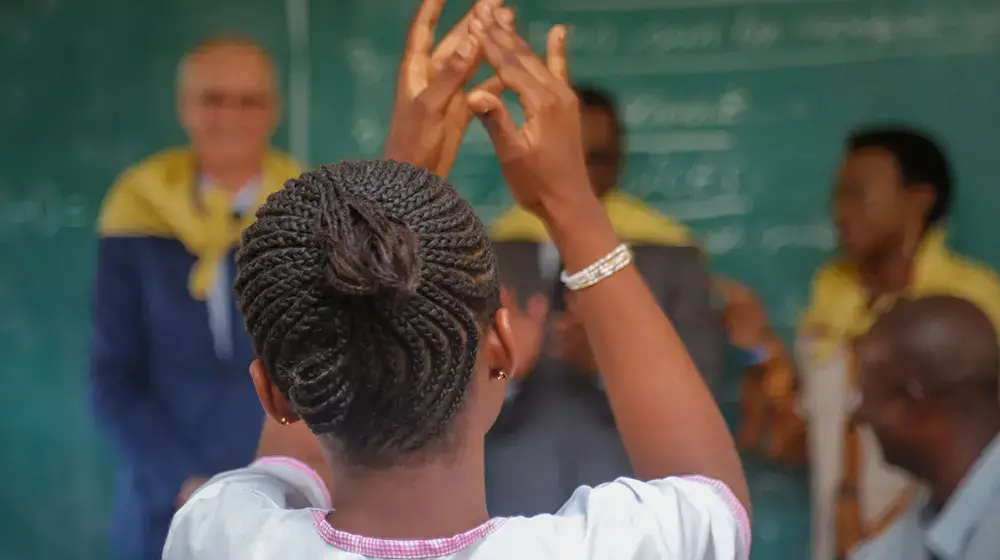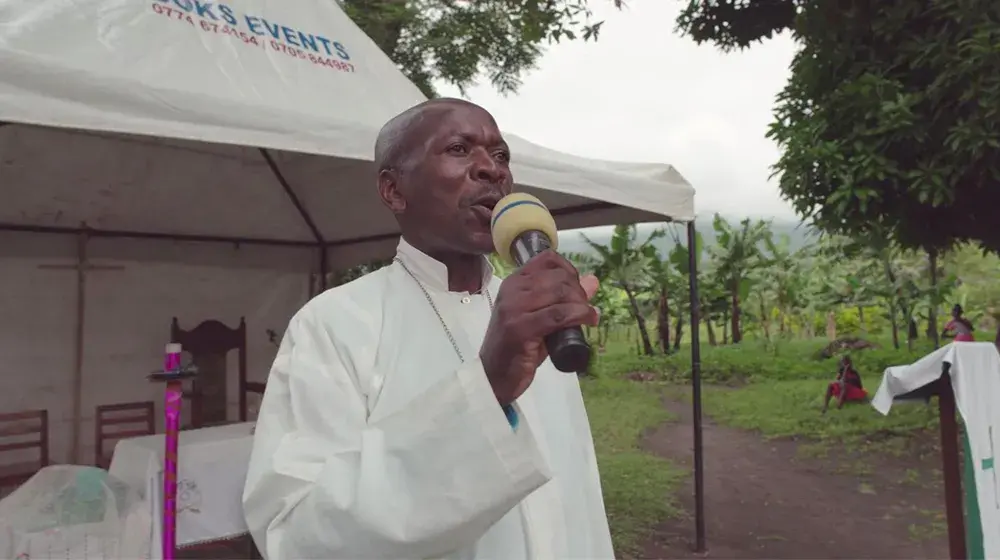NAIROBI, Kenya—Mother of four daughters, Eunice Ajiambo is a survivor of gender-based violence: “I was a housewife depending on my husband for everything. Life was hard because money was the biggest cause of conflict in our relationship. I left my marriage after I could no longer endure the abuse,” she says.
Ms. Ajiambo lives in Kibera, Africa’s largest urban informal settlement, in Nairobi. After her separation she took on odd jobs to make ends meet, until settling on a career as a welder and painter in the male-dominated construction industry.
I left my marriage after I could no longer endure the abuse.
During Nairobi’s lockdown when COVID-19 struck, Eunice lost her only source of income due to her gender: “Workers were required to live on the construction site in shared accommodation facilities,” she explains. “As the only woman in the team, I was not comfortable with this arrangement. I also had to take care of my children, aged 5 to 15 years, as I am their only caregiver, and therefore could not work away from home.”
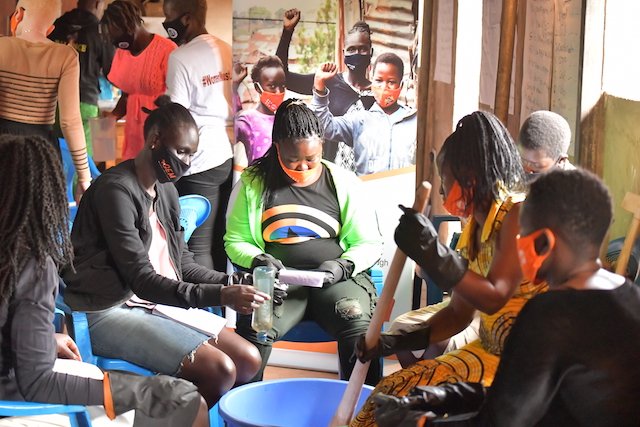
Women bear brunt of pandemic
A 2020 study on the impact of COVID-19 on women in Kenya showed that women are bearing the brunt of the economic and social impact of the pandemic. The study by UNFPA, UN Women, CARE International and Oxfam revealed how women from poor and marginalized communities like Kibera face even greater challenges due to the loss of livelihoods, compounded by increased violence and tension in the home.
Until she joined a group of 200 women on the Tujijenge Tujilinde Project (“Let’s build and protect ourselves”), Ms. Ajiambo did not know how she would fend for her family. Through the training she has received on how to make, brand and market soap products such as shampoo, hand wash, dish-washing and other multi-purpose liquid detergents, she is on the path of economic recovery.
Since COVID-19 was announced, people are afraid of employing house-helps from informal settlements. They think that we are the worst carriers of the disease.
As a domestic worker, Millicent Ochieng, 25, earned Kshs 500 ($5) a day before she was let go by her employer during the pandemic. “Since COVID-19 was announced, people are afraid of employing house-helps from informal settlements. They think that we are the worst carriers of the disease,” she says. To complicate matters, her husband was laid off.
The Tujijenge Tujilinde Project has given her hope for her family's future.
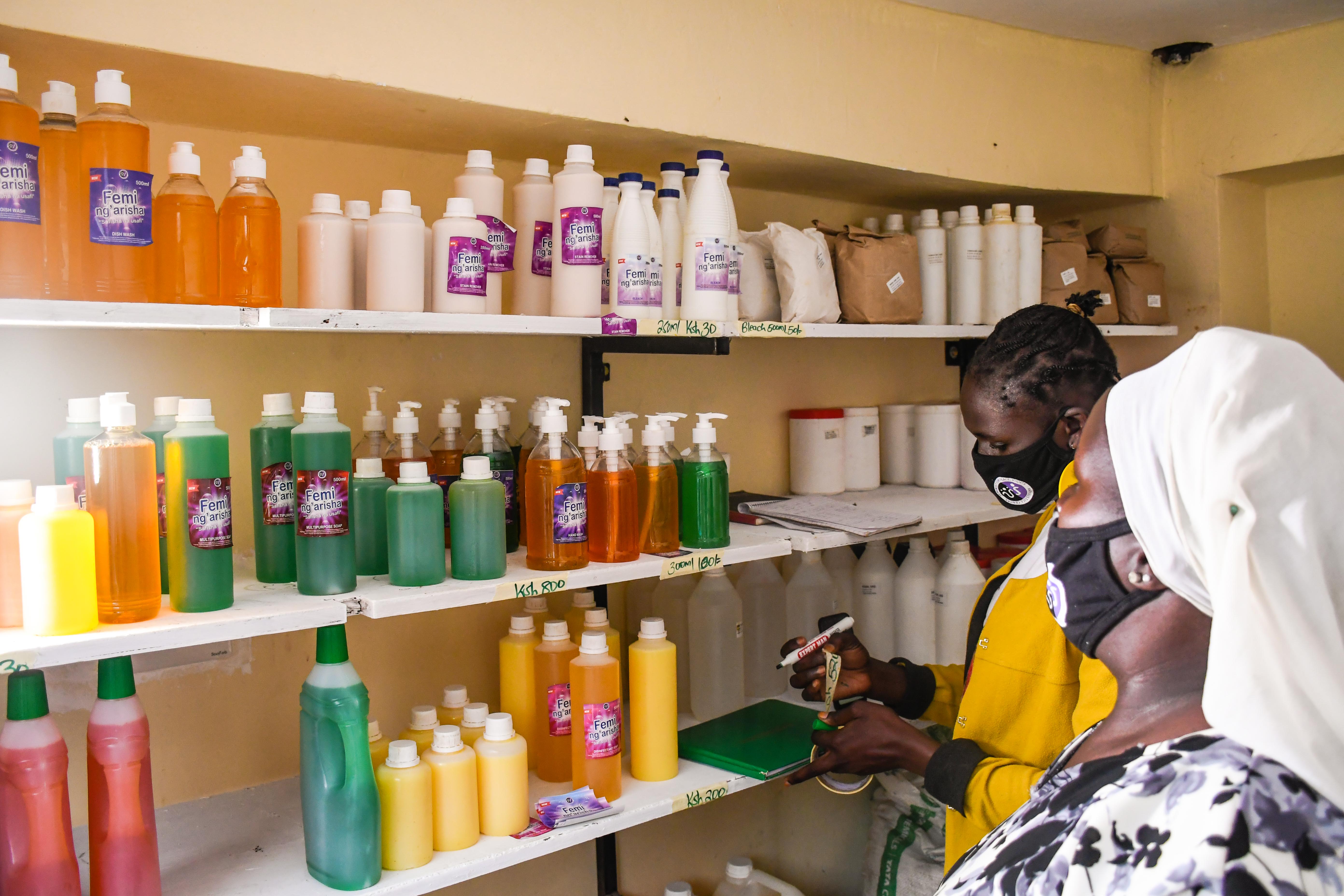
Through their training, the women have been able to develop a line of branded liquid soap products known as “FemiNg’arisha”. The Swahili word “Ng’arisha” means to “clean and shine”. They have established a small store in Kibera to sell the soap, and also plan to sell door to door and to place their products for sale in other shops and supermarkets.
Ms. Ochieng is excited at the prospect of earning an income from soap-making to support her family of five. “Everyone can make bar soap, but liquid soap is a unique product. I plan to focus on making hand wash, which I can sell in Kibera to encourage hand hygiene during this period,” she says.
Fighting GBV with economic independence
The income-generating and business mentorship project will help guard against gender-based violence for many at-risk women enrolled in the programme, according to Feminists for Peace, Rights, and Justice Centre (FPRJC) founder Editar Ochieng.
“These women need the means to stand on their own two feet economically, which is what the project provides. Our organization also offers psychosocial support to them and other women and girls in Kibera, which reinforces their confidence and ability to respond to and prevent GBV,” she says.
Economically empowered women have improved chances of negotiating and safeguarding their choices in regard to their sexual and reproductive health and rights, and protection risks.
UNFPA aims to achieve zero levels of GBV and harmful practices, preventable maternal deaths and unmet need for family planning. When a woman is economically empowered, she has a greater chance of making her own decisions, which improves her maternal health outcomes and reduces her vulnerability to GBV.
“Economically empowered women have improved chances of negotiating and safeguarding their choices in regard to their sexual and reproductive health and rights, and protection risks,” says Dr. Ademola Olajide, Representative for UNFPA in Kenya.
The project has been implemented by UNFPA with funding from Japan-based Meiji Holdings Co. Ltd, in partnership with FPRJC, a community-based organization in Kibera, and the African Gender and Media Initiative Trust (GEM).

